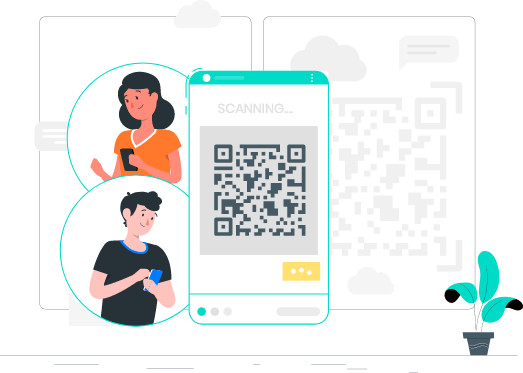Improving Employee Experience as they Return to the Office
The well-being of employees has never been more critical. Employee experience, of course, refers to their interpretation of their journey at work. It involves all aspects and
Read more
Remote working is on the rise and, with Covid 19 still a danger, it’s here to stay. A concept that was originally driven by cost-savings and a desire for a work/life balance is now also driven by public health concerns.
A recent article by McKinsey argues that over 80% of workers polled in their survey enjoy working from home, with 41% reporting increased productivity. The article says office working will continually evolve as a response to Covid.
This is not to say that there isn’t a return to work (Return To The Office) in place – albeit gradually – but it needs careful management if we are to avoid a second wave and to maintain staff productivity.
Instilling confidence is a pressing concern. If Covid wasn’t quite gloomy enough – there’s now a potential shadow pandemic where workers’ mental health will become even more important. Real estate leaders have a role to play in providing a supportive environment.
The bottom line is that when remote staff are spending time in the office they need to know that they have a safe and suitable place to work. This is where desk hoteling, enabled by desk hoteling software, can play a key role.
What is desk hoteling?
Despite the name it’s really nothing to do with hotels – except as an analogy.
When you are away it’s likely you will stay in a hotel – your home from home with all the comforts you need. Desk hoteling is much the same – you have a temporary home from home while you are away from your home office with all the resources available to achieve your work goals. The other similarity is that staff need to pre-book their desks in advance.
As a concept, it was initially pioneered by consultancy companies who had a large number of mobile staff with limited needs for a desk at HQ. It has now been adopted by organizations across the spectrum including many government bodies and international law firms.
Like a hotel, you need processes in place to make sure that everything runs like clockwork. You can’t have people turning up unannounced.
Hoteling software can play an important role in making an effective transition away from the traditional 1:1 office desk allocations.


So, desk hoteling – is it just a fancy way to say hot desking?
Hot desking is not the same as hoteling although the terms are often used interchangeably. They are similar, being based on an unassigned desk model, but not the same.
The key difference is that the hotelling for desk concept is based on having a pre-booking and checking-in process.
The pre-booking and check in process can either be done through a centralized office team or, more commonly, through technology.
This is great as everyone knows the process and, increasingly importantly with track and trace, there is a record of the person having checked in. It’s also much easier for real estate leaders to know how their desks are being really used.
Hot desking is more of a free for all approach. The model is still based on the unassigned desk model but there is no need to pre-book – it’s first come and first serve. An element of check in may still be required but this is largely to gauge available capacity.
We recommend using sensor technology as this can help provide an automated check in/out process while also displaying available desks on digital signage and provides a wealth of utilization data.
If space is at a premium then hoteling is ideal as space utilization and access can be more tightly controlled whereas hot desking is great in larger more casual offices where collaboration is key.
How workplace technology can help make hoteling a success
When dealing with expensive office space, it pays to have a system in place that can fully manage people, space, check ins and, these days, social distancing.
The key benefit of the hotelling for desk technology is that it removes the need for human intervention to check desk availability while providing an orderly booking process for your staff to choose just the right desk they need.
Reception staff, sadly exempt from desk hoteling themselves, can focus their time better on providing a great visitor experience as opposed to leaving their area for a frantic last-minute hunt for desk space.
By the same token, computerization can also help with mitigating desk no shows. By simply setting a business rule in the hoteling software it is easy to auto-release desks after a no show of, say, 15 minutes to whoever desperately needs a desk.
Increasingly, the technology for desk hoteling is becoming more mobile while also becoming more user friendly and powerful.
With social distancing looking to be part of the landscape for some time, many software providers are introducing floorplan booking into their mobile platforms. As well as offering ease of use it’s now easier to see where the socially distanced desks are and pre-book accordingly.
The desk hoteling systems also allow users to find their colleagues and book an available desk near them – great for collaboration (at a safe distance).
As we mentioned, booking is only one element of the hotelling for desk experience. For the space utilization aspect of hoteling to truly work well then there needs to be a process for checking in.
The check in process is becoming computerized with many organizations opting to use QR codes for desk check or using RFID sensors which have the added benefit of enabling staff to enter the building and check into their desks with one card.
Digital desk signage is the final piece of the desk hoteling jigsaw. For remote staff unfamiliar with the office layout the desk panels provide the reassurance that they have arrived at the right desk and, equally importantly, the desk is free as the panels can now be blocked out for cleaning.
When it’s free a quick swipe of the RFID panel or scan of the QR code and they are in – all touch free and safe. Thanks to integration with the hoteling software you have a record of when they checked and when they checked out.
After hoteling comes reverse hoteling
Once you’ve mastered hoteling and seen how it creates the correct balanced approach for desk allocation, you might want to take a look at reverse hoteling.
Thanks to this relatively new concept, real estate leaders can now free previously fixed desks and make them available in the desk pool.
How does this work in practice?
Say John is away for a couple of weeks on vacation, rather than see a desk go empty you can use the hoteling system to make the desk temporarily available for booking. When John returns his desk is automatically removed from the pool for his exclusive use – until his next vacation.
As well as meaning you can fully maximize your desk space you can also use the reverse hoteling system to maximize social distancing and safe working practices. Reverse hoteling is especially useful if you have several corner offices that are otherwise vacant, say, in the summer.
Find out more
We hope that you can see that desk hoteling offers a great alternative to hot desking.
We have produced a number of informative related resources including client testimonial videos, an agile working guide and a video showing how easy it is to use our mobile hoteling desk reservation system (all with social distancing in place).
Also, check out our return to work microsite and recent video for more useful tips.